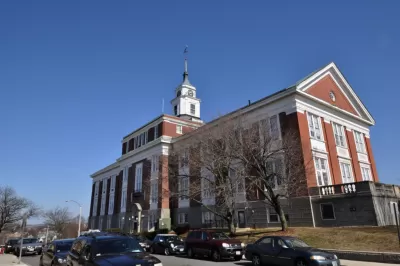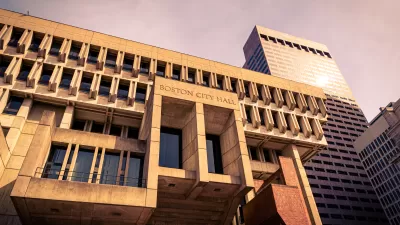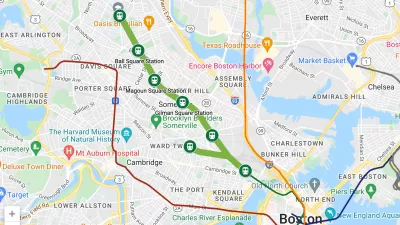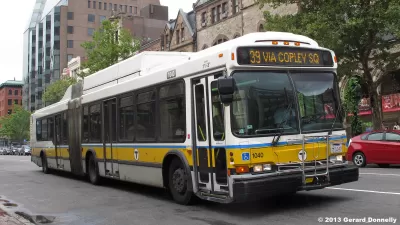The city has launched a program of collaboration with the green tech industry.

Two miles northwest of Boston, the city of Somerville, Massachusetts, has determined to reach carbon neutrality by 2050. While many cities, states, and countries have set targets for drastically reducing their carbon footprint, few have set such an ambitious goal. Bordering Cambridge, and surrounded by world-class universities, the small but densely packed city is "home to the largest green tech incubator in the country," Elizabeth Daigneau reports. "Somerville figured that if it was going to be carbon-neutral by 2050, it was going to need the help and cooperation of the business community."
The recently launched Green Tech Program will initially focus on pilot projects and facilitating information exchange through green tech networking events. The stated goal of the first event "is to raise the profile of municipal-ready technologies while providing a forum for city and industry officials to exchange opportunities and challenges." The first event was held in June in partnership with the Massachusetts Clean Energy Center.
The first pilot program will be launched in partnership with Understory, a weather intelligence firm that caters to the insurance industry. According to their website, the startup provides "hyper-local data to power advanced damage analytics." The firm will install solar-powered weather stations at two local schools in order to share weather data with the city and the public. Daigneau writes, "Ultimately, Somerville has three broad goals with its pilot projects: They must help with climate change mitigation, climate change adaptation and quality of life."
FULL STORY: How Does a City Get to Zero Carbon Emissions?

Alabama: Trump Terminates Settlements for Black Communities Harmed By Raw Sewage
Trump deemed the landmark civil rights agreement “illegal DEI and environmental justice policy.”

Planetizen Federal Action Tracker
A weekly monitor of how Trump’s orders and actions are impacting planners and planning in America.

Why Should We Subsidize Public Transportation?
Many public transit agencies face financial stress due to rising costs, declining fare revenue, and declining subsidies. Transit advocates must provide a strong business case for increasing public transit funding.

Understanding Road Diets
An explainer from Momentum highlights the advantages of reducing vehicle lanes in favor of more bike, transit, and pedestrian infrastructure.

New California Law Regulates Warehouse Pollution
A new law tightens building and emissions regulations for large distribution warehouses to mitigate air pollution and traffic in surrounding communities.

Phoenix Announces Opening Date for Light Rail Extension
The South Central extension will connect South Phoenix to downtown and other major hubs starting on June 7.
Urban Design for Planners 1: Software Tools
This six-course series explores essential urban design concepts using open source software and equips planners with the tools they need to participate fully in the urban design process.
Planning for Universal Design
Learn the tools for implementing Universal Design in planning regulations.
Caltrans
Smith Gee Studio
Institute for Housing and Urban Development Studies (IHS)
City of Grandview
Harvard GSD Executive Education
Toledo-Lucas County Plan Commissions
Salt Lake City
NYU Wagner Graduate School of Public Service





























